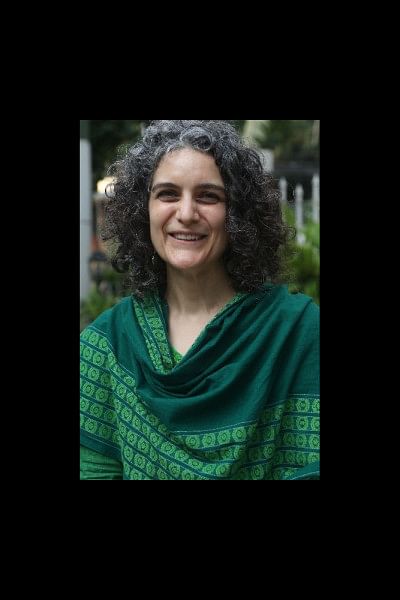THE CHANGE WE WANT

There have always been a lot of division amongst the people of this country. There are religious divisions, political divisions, class divisions, and then some. Because of these divisions, the unity amongst the people in Bangladesh has faded to a point of obsolescence. One gap that desperately needs to be bridged, is amongst those with the strongest hold on society and those who want to develop it.
‘Leaders of Influence’, an initiative of Asia Foundation and a project funded by USAID, also called 'Imams on A Bus,' began with the intent to reduce the distrust and miscommunication between religious leaders and NGOs, or development organisations, and remove the misconceptions that religious leaders have about development work and also remove the misconceptions that other people have about religious leaders.
”The reason we decided to focus on Imams (Islamic religious leaders) was because when we thought about spreading the message all the way to the grass root level, we had to think of people who had the most influence in a community,” says Sara L Taylor, Deputy Country Representative, Asia Foundation.
The project began in 2002 and continued till 2006. It resumed again in 2007 and continued till 2011. The Asia Foundation also partnered with the Islamic Foundation, who agreed to send their Imams from the Imam Training Academy Centers. They worked with around 27,000 Imams.
The project was embedded into their regular 40 day training, with an addition of 3 extra days for social development training. While working on the project, Imams were taken to different service centers where they were shown the kind of development work done in NGOs.
During the first phase, there were only Muslim religious leaders, and in the second phase, there were leaders of other religions along with people from other professions.

“Even though it took a while for their interest to grow, it ultimately did, and they were all very positive about it by then,” says Nazrul Islam, Director, Islam and Development Programme, Asia Foundation.
After the Leaders of Influence project ended, the Asia Foundation continued to work with Imams and through one of the participants' suggestions, their wives too. The continued work included training that focused on ‘Violence against Women’ and ‘Good Governance’.
The Violence against Women programme consisted of topics such as 'Violence against Women in Bangladesh', 'Solution according to Islam', “Islam's take on Mental, Physical, Sexual and Economic violence', 'Risks of violence in Islam' and they were taught which service providers to go to when faced with problems related to such issues, if they cannot keep it under control themselves.
The Good Governance programme, which the Asia Foundation have started in madrasas and other secular Higher Secondary Schools as well, focuses on topics such as 'Good Governance in Bangladesh', 'Participation in Governance', 'Tolerance and Mutual Respect', “Judgement', 'Responsibility of Religious Leaders' and more.

All of the topics are discussed in an Islamic and Bangladeshi context. “All of our curriculums were designed by religious experts and religious scholars,” says Sara Taylor.
The response and result of these on-going projects have been remarkable, to say the least. The Imams themselves have been actively participating in developmental and social changes in their communities. They have partnered with their wives and while they cater to the men, their wives educate the women, in their respective communities.
They have become open to discussions on topics such as family planning and child marriage- which would have been considered impossible a couple of years ago. The women have started advocating against violence against women and are taking measures towards eradicating it from their communities.
“There were Imams and their wives giving us suggestions on how to further our work on development! They had understood their roles in society, they realised that there is much more to governance than government, they have realised their misconceptions about development and are now becoming our strongest, most influential advocates,” says Sara Taylor.
We, as citizens, have been hoping for change for as long as we can remember. Change in attitude, change in politics, change in infrastructure, we hope for change in every aspect of life. But now, thanks to initiatives like the Leaders of Influence, we will finally, after the longest of waits, start seeing the change.

 For all latest news, follow The Daily Star's Google News channel.
For all latest news, follow The Daily Star's Google News channel. 



Comments